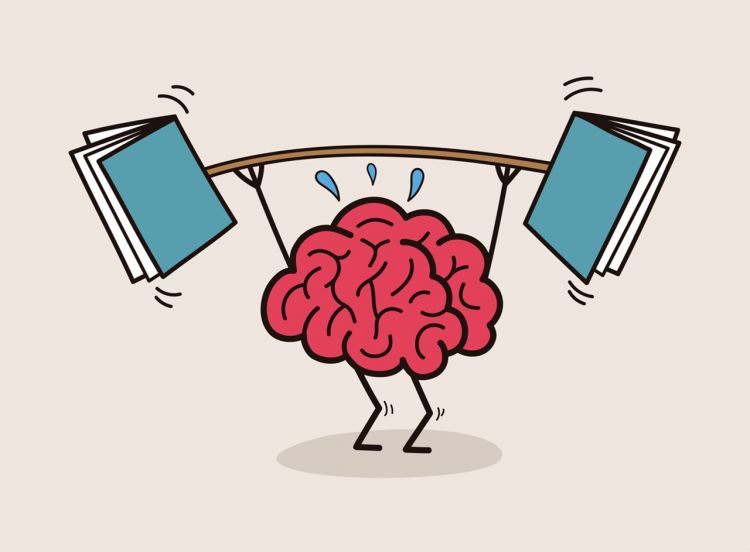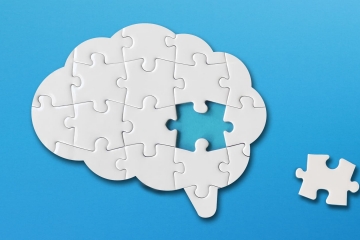
Preparing for the Greek citizenship exam is not an easy task. It covers several areas: the history and geography of the country, culture, political system, and of course the Greek language—reading, writing, listening, and speaking. The amount of material is impressive, and many candidates initially feel confused: too many topics, too much information. This is absolutely normal. But with the right organization of study, chaos turns into a system, and anxiety gradually goes away.
In the first article (link) we examined the structure of the exam, in the second we offered an express two-month preparation plan. Today we will focus on the most important part—how to effectively memorize large volumes of information and learn without overload.
How memory works
Cognitive psychology has long proven: new information first goes into short-term memory, where it is held for a short time. To “fix” knowledge and transfer it into long-term memory, it must be repeated, understood, and applied in different situations. This is the foundation of any effective preparation. The first step is the proper allocation of time. Last-minute preparation almost never works: it only leads to sleepless nights, fatigue, and stress. The brain needs time to calmly “digest” and process information. Start early, determine your rhythm, and be sure to include rest days in your study plan. It sounds paradoxical, but pauses are exactly what help our memory work better. Another principle is the use of different channels of perception. Everyone has a preferred way of memorizing: some perceive better by listening, others through visual images, and for some it is important to write everything by hand. But the strongest knowledge is formed when all methods are used at once: reading, listening, writing, and speaking.
Working with different types of memory
- Visual memory: use tables and diagrams. Hang printouts around the house: a contour map of Greece on the wall, a list of cities or historical dates in the kitchen. Even if you just walk past several times a day, your eyes continue to “absorb” the information.
- Mechanical memory: rewrite answers to questions, terms, and definitions by hand. Writing activates fine motor skills, concentration, and helps to memorize material better. Write as many essays as possible by hand to improve spelling and memorize phrase clichés.
- Auditory memory: record correct answers as tracks on a recorder, listen to them while walking, in the car, at home, doing household chores. You can also use modern AI services to voice questions and correct answers. Knowing your strengths and dominant type of memory makes it easier to apply specific techniques that make learning more productive.
Techniques and tools for memorization
Extracting the main idea: in test questions, try not to memorize everything but to extract the main point: key words. Thus, a whole sentence can be reduced to two words.
- Flashcards: a classic but very effective method. Paper flashcards with questions and answers are convenient to carry with you, and digital platforms like Quizlet and Anki allow you to set spaced repetition and track progress.
- Method of elimination: in true/false tasks, there is usually only one incorrect option. It is much easier to memorize it than to try to keep all the correct answers in memory. At the same time, it is important to understand why this option is wrong—such meaningful memorization not only strengthens memory but also develops critical thinking, helping to logically approach other questions.
- Associations and images: there are also unconventional but very effective methods—for example, linking information through humorous or associative images. This helps to activate imagination and, along with it, emotional and figurative memory.
For example, to memorize that the capital of the district Ημαθία (Imathia) is the city Βέροια (Veria), a playful phrase can help: “Vera is the mother of the Mafia.”
And to remember that the lake Τριχωνίδα (Trichonida) is located in the region Αιτωλοακαρνανία (Aetoloakarnania), imagine the phrase “A trichologist is a hairy Aetalon.”
How to remember that in the following geography question three statements will be true and one will be false:
1. Lake Trichonida is located in Aetoloakarnania – true
2. Lake Vistonida is located in Thrace – true
3. Lake Koroneia is located in the Peloponnese – false
4. Lake Petron is in Macedonia – true
A phrase that encodes the names of the lakes by their first syllables can help: “Trichologist Vitya Petrov does NOT wear a Crown.”
Such associations help connect two names or geographical terms. They work because they activate not only logical but also emotional zones in the brain: the funnier the linking phrase, the stronger it will be remembered.
After you have mastered the basic memorization techniques (working with different types of memory, flashcards, associations), you can move on to more complex and creative methods that help consolidate and systematize knowledge. - The Method of Cicero (or “memory palace”): allows you to place information in an imaginary space. Imagine that key dates are hanging in the hallway, political parties are in the kitchen, literary works are in the bedroom. By “walking” through this house in your memory, you can easily reproduce the material, because it is connected with vivid images and familiar spatial landmarks.
- Storytelling: helps make dry facts more vivid. History is easier to remember as a narrative. For example, the reforms of Solon can be imagined like this: “Athens is in debt. Solon declares ‘Seisachtheia,’ writes laws, the people sigh with relief.” Such a narrative immediately creates an emotional connection with the material and makes it easier to memorize.
- Visualization and mind maps: give the opportunity to see connections between topics. For example, in the center of a sheet you place “Greek culture,” from it arrows lead to theater, architecture, philosophy. From theater—branches with the names Sophocles, Aeschylus, and Euripides. This visual approach helps keep the whole picture and at the same time fix the details.
- Active recall: one of the most effective ways to consolidate knowledge. After studying a topic, close the printouts and notebooks and try to tell the topic aloud or write the answer on paper. You can arrange a mini-exam with friends or family: this not only checks how well you have learned the information but also trains the ability to present knowledge quickly and clearly. Try to combine all these methods, experiment, and observe which one suits you best.
And now let’s answer the questions that most often arise among those preparing for the exam. 
FAQ
Should I attend language courses?
- Yes, especially if your Greek level is below A2. Courses will help you master the language faster, simplify preparation for the exam, and make your life in Greece much more comfortable.
And group courses for preparing for “ΠΕΓΠ”?
- They are useful if you need a structured program, group support, and additional motivation. Working in a team helps you focus, disciplines you, and allows you to follow a ready-made preparation plan.
Individual lessons with a tutor?
- The individual format is suitable for those who value flexibility, personal attention, and working at their own pace. It is a good choice if you need the support of an experienced teacher who can identify your specific gaps, set priorities, and build an effective preparation strategy—without unnecessary time costs.
Is it possible to prepare on your own?
- Yes. With sufficient motivation, patience, and a serious approach—it is quite realistic.
For those who want to prepare confidently and feel supported at every stage, we invite you to classes at the online school Skype-Language.com. Our teachers are not only professionals but also practitioners who have already successfully passed the “ΠΕΓΠ” exam and know how to make the preparation process as effective and comfortable as possible.
In conclusion
Remember that memory is a flexible and trainable tool, and the more varied and regular your work with it, the easier it is to retain and reproduce information. Use different methods, experiment, listen to yourself, and do not be afraid of mistakes—each attempt brings you closer to the result. Preparing for the exam is not just a path to citizenship, but also an opportunity to understand the country, its culture, and its language more deeply. Spaced repetition will reinforce dates and words, the Method of Cicero will help systematize facts, associations will make dry numbers vivid, and storytelling will turn the history of Greece into an engaging narrative.
The exam will no longer be a race for facts—you will learn to build meaningful connections with them, and knowledge will “surface” easily and confidently even in stressful situations. Let each day of preparation bring you not only closer to successfully passing the πολιτογράφηση but also to a sense of self-confidence, respect for your own efforts, and a genuine understanding of rich Greek culture. With this approach, the exam becomes not a barrier but a step toward new opportunities!
































